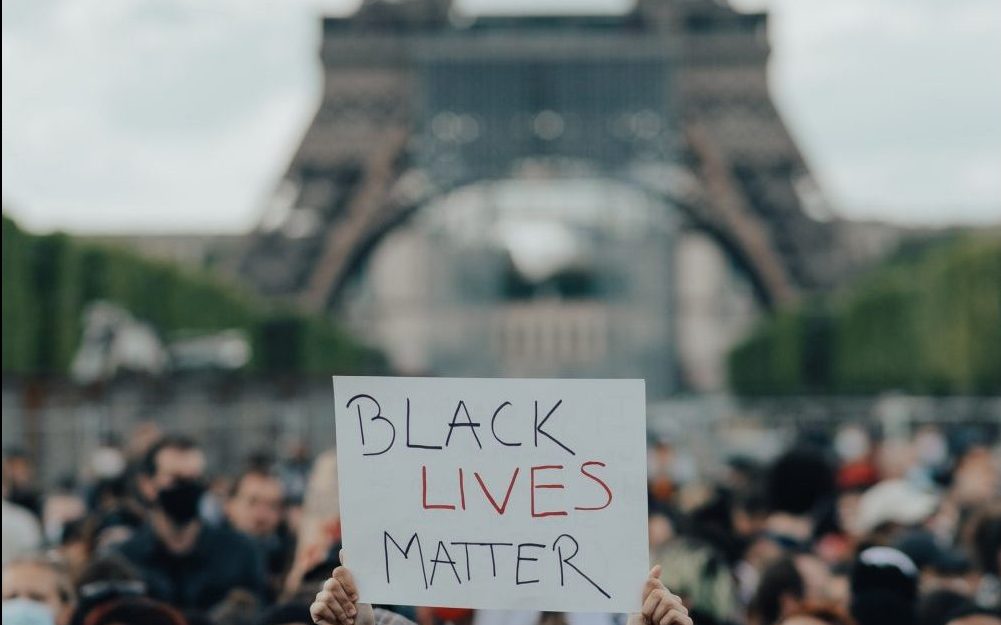Recent demonstrations in the United States following the murder of George Floyd have had vibrant repercussions in France. Protests against police violence have also erupted here, spurred in part by the killing of Adama Traoré while in police custody in 2016. In both countries, the current movements are also a rejection of deeply entrenched racial inequalities.
While the United States and France differ in their history and social structure, racial minorities face substantial disadvantage in both countries. Racial inequalities are now widely documented by the social sciences in the U.S. for example for employment, income and wealth as well as a variety of other indicators. Studies from France increasingly show disadvantage for non-whites for a wide range of outcomes such as, for instance, residential segregation and life expectancy. A recent study shows that labour market discrimination in France is the highest hiring discrimination rates among comparable countries, including the U.S. Moreover, the basic mechanisms that enable us to understand racial inequalities are in fact similar on both sides of the Atlantic. Recent research in sociology and social psychology helps us understand how the embeddedness of individual decisions within cultural, structural and cognitive mechanisms produce the unequal treatment of minorities.
In France as in the U.S., processes of stigmatisation are rooted in collective historical experiences of racial oppression such as slavery and colonisation. Those histories endure – generations today inherit and reproduce the stigmas of the past. A recent study shows that the regional distribution of implicit bias in the U.S. still relates to historical differences in the implementation of slavery. France’s history of colonialism and slavery has also contributed to the stigmatisation of minorities, yet in different ways than in the U.S. context. However, racial stigmatisation is not only a relic of the past – it is continually conveyed, renewed and reconstructed.
Structurally, the unequal distribution of resources between groups contributes to the reproduction of racial inequalities. Repeated representation of disparities in education, income, social mobility mentally associate racial minorities with poverty, low education or skills, and even crime and violence. These observed correlations between group belonging and socioeconomic resources fuel expectations about individuals and even create a “status bias,” or assessments about individual deservingness and worth.
Finally, the cultural and structural factors that underpin social cognition produce discrimination. Studies in social psychology have shown how we stereotypically assign characteristics perceived as representative of a group to an individual. If the use of these “mental shortcuts” is a faculty of the human mind, cultural categorisations give substance to the “classification” and “assessment” of individuals and events that we face in everyday life. And while group stereotypes are diverse, two central dimensions remain stable across contexts: the degree to which groups are perceived as “likeable” (warmth) and “capable” (competencies). These two dimensions are more or less ambivalent (likeable/incompetent; not likeable/competent) according to groups and societies: a recent study comparing 38 countries shows that this ambivalence correlates with inequality and between-group conflict.
These three levels of mechanisms—the cultural, the structural, and the cognitive—help us understand the attitudes and behaviours not only of police officers, but of all social groups, from employers and real estate agents to teachers and judges, in their interactions with minorities.
While these mechanisms operate universally throughout society, the distribution of explicit and implicit racial bias and the degree to which they lead to discriminatory behaviours vary across groups. Even though it is difficult for social scientists to study police environments, the existent research suggests strong bias against minorities. In France, African minorities face harsher treatment from the police and criminal courts. Some evidence further shows that repressive attitudes predominate among police officers, and that these attitudes correlate with far-right political positions and anti-immigrant attitudes. Moreover, interactions with the police often involve the use of authority and violence in stressful and uncertain contexts – decision-making situations that inflame stereotypes. For example, the use of certain policing methods (controls, the use of weapons, arrest techniques etc.) could trigger discriminatory behaviour.
We need to combat racial inequality in both countries by acting on each of these three elementary processes. Culturally, we need large-scale public policies that recognise past and present racial inequalities to de-stigmatise and rehabilitate minorities. Structurally, we need policies that reduce socioeconomic disparities between racial groups whether by repairing past discrimination or by implementing equal opportunity measures. Cognitively, we need organisational programs and procedures that promote equitable access to resources, and that “de-bias” decision making in education, hiring, housing and other spheres of resource allocation. Thus, even if doubt still surrounds the term “systemic racism”, none should linger about whether we need systematically anti-racist policies.
Note: This article gives the views of the authors, and not the position of the Social Policy Blog, nor of the London School of Economics.





